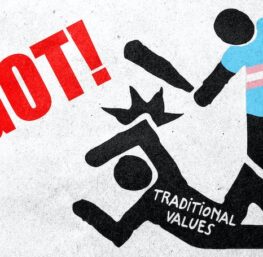
Radio Free Europe –
Peter Weir is Australia’s most acclaimed film director, with movies like “Gallipoli,” “Picnic at Hanging Rock,” “The Truman Show,” and “Dead Poets Society” to his name.
His most recent release, “The Way Back” starring Ed Harris and Colin Farrell, traces the purportedly true journey of prisoners who escaped from the Siberian gulag and made it to India, via the Gobi Desert, the Himalaya Mountains, and Tibet.
Weir recently visited Prague for the Febiofest film festival, where he was given the Kristian Award. He spoke with RFE/RL writer-at-large James Kirchick about his research of the gulag, his political reawakening, and how audiences are reacting to “The Way Back.”
RFE/RL: What was it that inspired you to make this movie?
Peter Weir: I generally tend to say “no” to everything so I’d said “no” to it initially although I’d enjoyed the book very much that had become the primary inspiration, The Long Walk by Slawomir Rawicz. But I felt I couldn’t get it off my mind. It would come back to me. And I’d pick an odd book off the shelf to read about this period, which was essentially the Soviet era, although it’s set in the Second World War.
I found myself reading a little around it, and I read Anne Applebaum’s book “Gulag.” I was drawn into it, it was irresistible, finally, and I accepted to do it and found one of the great experiences was the research and interviews with survivors and so on.
RFE/RL: In many ways it’s an adventure story, but there’s something of a political message in the movie, do you think, or was that not intentional?
Weir: I know you don’t mean this, but a gentleman got up at a preview during question-and-answer time and said to me, “You know, this film is basically anticommunist.” I said, “Yeah.” I said: “I’m anticommunist and I’m anti-Nazi. I’m anti-police states, generally.”
I’m not a political filmmaker, although everything is political, as somebody said. It’s always been the human condition which has interested me and, in this case, these people had suffered injustice as the result of a political system that was an incredible experiment of the 20th century. The first thing I noted was how little I knew about it. I had to do a lot of reading.
Left-Wing Dreams
RFE/RL: About communism?
Weir: Yup. Because for my generation growing up through the ’60s, when you’re a part of, particularly, the antiwar movement in Australia, and as it was in America, you came to distrust your own side’s version of what was going on.
And in some ways obviously you came to realize this had been the result of clever dissembling on the part of communists or communist sympathizers or apologists, and partly because of the ineptitude of the McCarthy hearings, with the House un-American Activities [Committee] — that might as well have been a communist organization, it so brilliantly turned people against them — that you grew up really thinking it wasn’t as bad as it was made out to be.
And that’s a shock. I know many of my friends from that period — we were all vaguely leftish as all young people often are — idealistic. I can’t believe how gullible we were in looking back.
It’s almost impossible for a lot of people to admit that this experiment of communism went so disastrously wrong and face the facts.
RFE/RL: Movies like this aren’t made in Hollywood. There are so many movies about Nazism and fascism. There are very few movies about communism, and so many great stories that could be told. Why do you think that is?
Weir: Again it’s “be careful if you tread on my dreams.” I think in the world of creativity and even in the academic world to a degree, those who had their leftist sympathies when they were young, or communist sympathies, and the romance of it, found it very hard to give it up. They still sell the Che Guevara T-shirts like he was John Lennon or something. No one really wants to criticize Castro.
It’s almost impossible for a lot of people to admit that this experiment of communism went so disastrously wrong and face the facts. Whether its Stalin or Lenin, for that matter, I can’t let him off the hook, he was all for the terror. Through to Pol Pot, through to North Korea. What can you say? It’s just dreadful, appalling.
But there’s still resistance. I’ve noted that, even amongst friends to this day. When I said I was making this film and what it was about, there was just that moment, just that flicker across the face: “Oh, you’re going along a right-wing road.” And that fascinated me that that was still possible, to have held onto that romance from youth.
HT: Radio Free Europe (read full interview)



